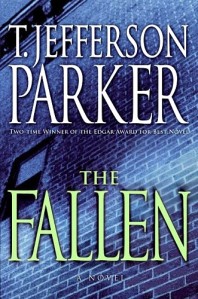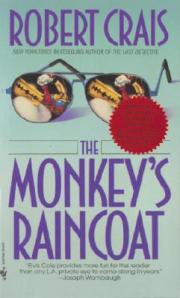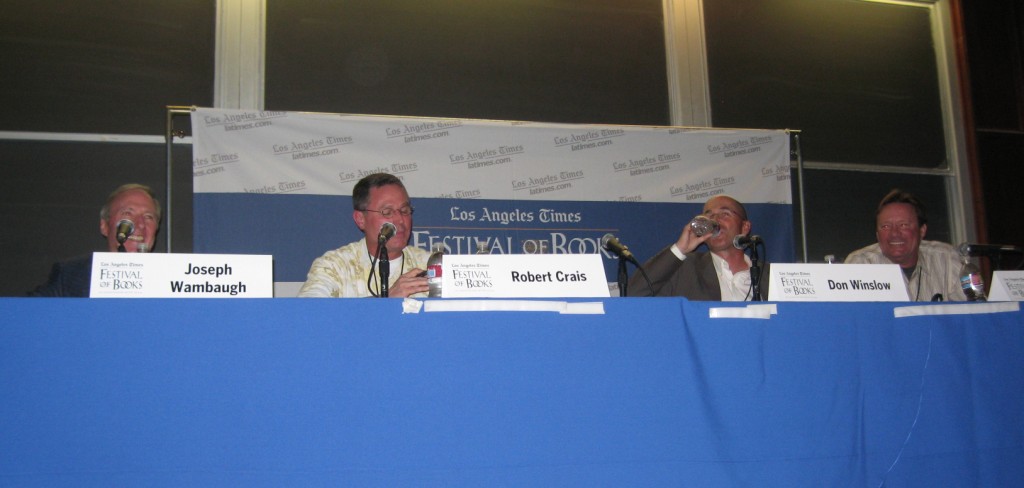Remember in the ’70s when you bought K-Tel compilation albums because you didn’t want to buy a bunch of albums by different bands where most cuts were just filler? This past Saturday, at the annual L.A. Festival of Books, the “Cops & Crooks in California” panel was like a K-Tel collection, with Don Winslow (The Dawn Patrol), T. Jefferson Parker (The Renegades), Joseph Wambaugh (Hollywood Crows) and Robert Crais (The Watchman) as moderator. Everyone was a hit and you got them all in one place.
Apparently this panel sold out quickly so for those of you who couldn’t get in or don’t live in the area, I took notes and thought I’d post the highlights. There’s no way I can capture all the hilarity but there’s still plenty of juicy info to be had. Many thanks to Debbie DeNice, who helped me recall quotes in parts where my memory was foggy and my scribbles illegible. I’ll publish this in two parts so be sure and come back for all the good stuff.
*****************************
After introducing the panelists, Crais’s first question was whether there was “something about Southern California that’s particularly identifying” to the other writers. He addressed Parker first.
“I was born here. I don’t have to go to a new place and ask questions and learn anything because it’s right in front of me,” Parker said. “You know, it’d be very hard to go set up a story in Boston and have the same sort of casualness to the story. I’d have to work really hard.” He equated being a native Californian to Nicholson having floor seats at Lakers games.
“I came out on a case [as a P.I.], went down the PCH, saw Laguna Beach, called my wife and said, ‘We’re moving out here,'” Winslow said.
Wambaugh said he came out here when he was 14. “Would it have been the same if I’d written East Pittsburgh noir?”
“I’d be terrified to go somewhere else and set a novel,” Parker added. “I lived in Orange County for 45 years. My big move was from Orange County to Fallbrook. It was 34 miles but I felt like Magellan.”
Crais next asked the writers how they felt about writing standalones vs. a series.
 Wambaugh said, “I wrote a sequel to Hollywood Station because I thought maybe it’d be easier since I had some of the characters…But I found some of the characters didn’t want to come back…They didn’t help me plot. Plotting’s the hardest thing.” He added that on his tombstone, it’ll probably say “At Last, a Plot.”
Wambaugh said, “I wrote a sequel to Hollywood Station because I thought maybe it’d be easier since I had some of the characters…But I found some of the characters didn’t want to come back…They didn’t help me plot. Plotting’s the hardest thing.” He added that on his tombstone, it’ll probably say “At Last, a Plot.”
“I didn’t know better,” Winslow said. “I thought all P.I. novels had to be series [he wrote the Neal Carey series].” He stopped writing about Carey when the detective became a “whiny, petulant, little bastard” and the author got tired of him. Winslow told a funny anecdote about a fan asking at a signing if he was anything like Carey and he denied it while his wife nodded vigorously. He then mentioned that the Dawn Patrol gang will be back in his next novel, The Gentleman’s Hour, which made me squeal internally. Hour will be released in the U.K. in June but won’t be out in the U.S. until next year.
Parker said he didn’t look at it as writing a series, more like “writing one big book that’s 2,000 pages.” He mentioned that Charlie Hood from L.A. Outlaws and The Renegades will be back for his third adventure next year called Iron River.
Crais next asked the other writers to share their Hollywood experiences. “Is screenwriting work as important as your prose work?”
“Screenwriting—adapting, I should say, a novel—is the only writing that’s actually fun. It’s like a crossword puzzle,” Wambaugh said.
 “I have a guy turning The Fallen into a series…Maybe I can learn something new. Can’t wait,” Parker said. He then added, “Don’t hold your breath, though.”
“I have a guy turning The Fallen into a series…Maybe I can learn something new. Can’t wait,” Parker said. He then added, “Don’t hold your breath, though.”
Winslow had considerably less enthusiasm for Hollywood. He told a story about having a meeting at a studio “that shall remain nameless.” But then he said when he arrived, the guard told him to “go up Mickey Street then left on Dopey Lane.”
“So this was at Paramount?” Crais joked.
Winslow continued, “I told the guard, ‘I took a left on Dopey Lane back in ’89 and didn’t make it back onto Mickey Street until ’92!’ ” The guard said, “Don’t repeat that upstairs.” When Winslow finally got in to see the movie exec, who had several books on his desk, Winslow asked if he’d read them all. The exec answered, “I don’t read. I have people who read.”
 Crais then told his own story about the “studio that shall remain nameless.” He said when The Monkey’s Raincoat first came out, he received a call from Michael Eisner’s office saying the then-CEO of Disney liked his work and wanted Crais to write a movie based on an original idea Eisner had. When Crais arrived for the meeting, he was met by an exec who said Eisner couldn’t make it. The man then asked Crais if he’d heard of Beverly Hills Cop. When Crais said yes, the exec said that Eisner felt “Beverly Hills as a location hasn’t been exhausted yet at the box office.” Crais said, “Great. What’s the idea?” The exec looked confused and said, “That’s it.”
Crais then told his own story about the “studio that shall remain nameless.” He said when The Monkey’s Raincoat first came out, he received a call from Michael Eisner’s office saying the then-CEO of Disney liked his work and wanted Crais to write a movie based on an original idea Eisner had. When Crais arrived for the meeting, he was met by an exec who said Eisner couldn’t make it. The man then asked Crais if he’d heard of Beverly Hills Cop. When Crais said yes, the exec said that Eisner felt “Beverly Hills as a location hasn’t been exhausted yet at the box office.” Crais said, “Great. What’s the idea?” The exec looked confused and said, “That’s it.”
Crais’s next question was why the men chose to write crime fiction. He said he does it because “I love this stuff” and he’d be reading it if he weren’t writing it.
“I guess if I knew anything about ballet, I’d write about ballet. I was a cop,” Wambaugh said, shrugging.”I went to CalTech to do some research and did end up writing a crime that took place at CalTech. The answer is: What else can I do?”
“Who do you like?” Crais asked.
“I like Tom Wolfe…that’s a guy you can learn something from. For those of you who are novelists or journalists, whatever—he can really put it together. I highly recommend him,” Wambaugh said.
Next, Winslow shared why he writes crime novels. “Same answer—you write what you know and frankly, I grew up around criminals…I always loved the genre, I love reading it. I think as a writer it gives you everything. I’m really greedy as a writer, I want it all. With the crime novel, you can take everyday life if you want drama, then you can also do murder and mayhem and political issues, the nexus of government…so for me, it just gives me that whole world. Any of that piece you want, you can do it in a crime novel.”
Come back tomorrow for the conclusion, when the panelists discuss scary tour experiences, their plotting techniques and how they feel about the Kindle.

